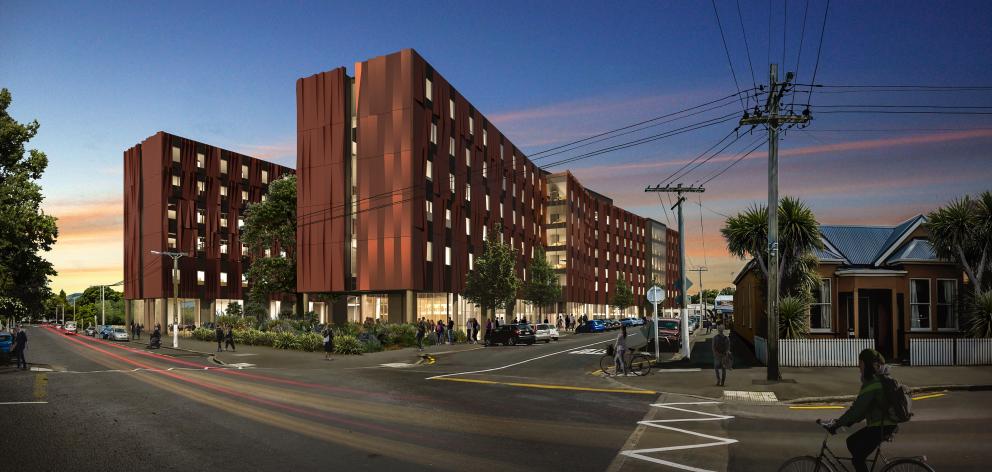
The 450-bed college, announced yesterday, will be ready for the 2023 year and is expected to cost about $90 million.
It will be located on the university-owned corner of Albany and Forth Sts, the site of a recording studio due to be demolished next year.
The identity of the present Te Rangi Hiroa, on the site of the new Dunedin Hospital, will be transferred to the new hall.

A university spokesman said construction of the building would start in 2021, and a preferred contractor would be identified by the end of this year.
The existing 125-bed college would either close in 2022, or continue as residential accommodation for a time, depending on the progress of the hospital project.
Descendants of the university's first Maori graduate, Te Rangi Hiroa (Sir Peter Buck), gave the use of his name for the existing college, which opened in 2014.
Southern Partnership Group chairman Pete Hodgson said despite a partial timing overlap, he did not expect any delays to the construction of the new Dunedin Hospital due to the project.
The hospital's day surgery and outpatient building is expected to open in two stages, in 2023 and 2024. The larger inpatient building will not open until 2028.
Ongoing projects such as the university's new $26million centre for music, theatre and performing arts, expected to be operational in February next year, and the $50million animal research facility expected to be complete mid-next year, were keeping the construction industry in the city busy.
Mr Hodgson was trying to pin down the timing of the planned ACC building, expected to house 500 staff, but timing of the city's other projects in relation to the hospital was ''well understood'', he said.
University of Otago vice-chancellor Prof Harlene Hayne said the college, which would have four wings, was an opportunity to build on the culture developed by staff and students at Te Rangi Hiroa over the past five years.
''It is important that we respect the taonga gifted to the University by creating a facility that can proudly bear the name of Te Rangi Hiroa,'' she said.
The new college would have a team of professional staff living on site, supported by RAs, administration and reception staff, a dedicated kitchen and dining room staff, academic tutors and evening security.
It will include 125 en suite rooms, professional college staff accommodation, reception and offices, dining hall and kitchen, and multi-functional communal spaces.
Comments
....followed by complaints of the smell of the Greggs factory and demanding of its closure
My gut feeling is that at 10% of hall's of residence have cars. So does this facility have 50 carparks? Probably not, given other recent builds. That should be in the DCC consent because students have cars (surprise?) and park them on the streets taking away precious parks for workers. Wake up DCC, you are part of the problem, if not the main reason for the parking situation in Dunedin.
